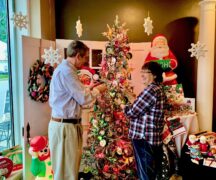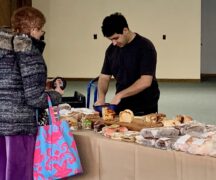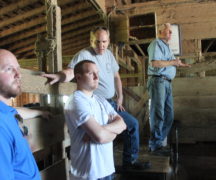By JULIE CARLE
BG Independent News
PEMBERVILLE – Darla Boyk’s first trip to Honduras in 2017 took her to remote villages in the mountains where she saw mothers worried about their children’s health.
“I looked at those moms and kids. As a mom, seeing them drinking dirty water contaminated with a high level of parasites was a real gut punch. It hit me hard,” Boyk said.
The dirty water, which is used for drinking, brushing teeth and washing, was at the root of some unthinkable statistics: The average Honduran child has diarrhea 13 times a year, or approximately every three to three and a half weeks. Nearly 40% of the children are anemic, and each year more than two million Honduran children have parasites.
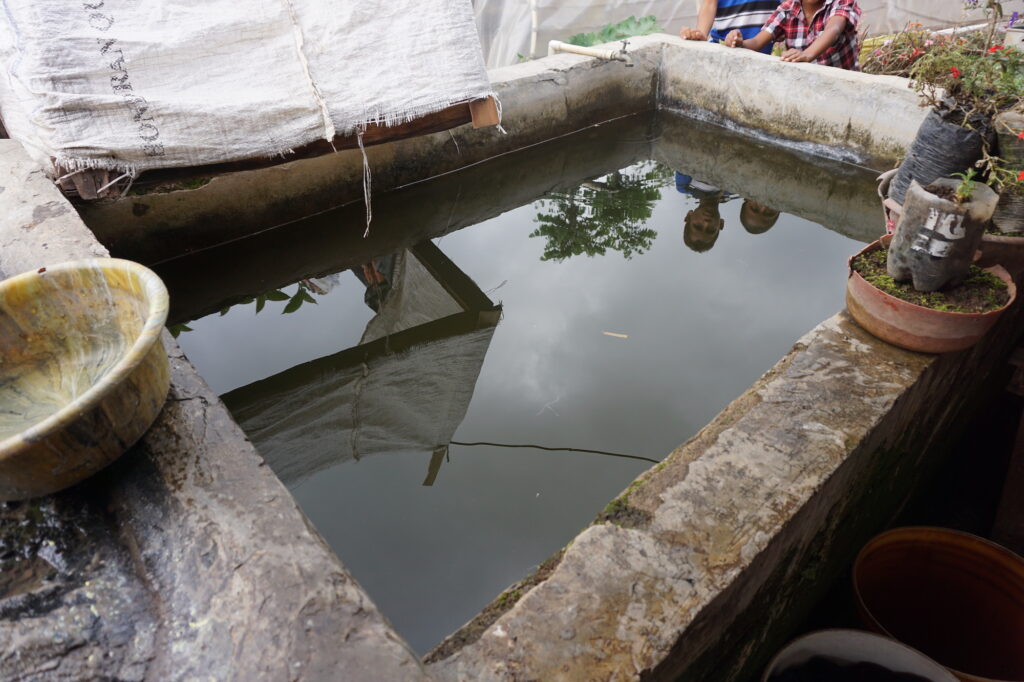
When Boyk returned from the eye-opening trip with the John Carroll University Medical Brigade, she was distraught with what she saw. She had learned about the medical brigade’s work when her daughter Megan was a pre-med student at the university.
For several years before she traveled to Honduras, she had rallied parishioners at Bethlehem Lutheran Church and others in the Pemberville area community to support the brigade’s work by donating health care items such as vitamins, over-the-counter pain medications and glucometers.
The lack of infrastructure that forced families to get water from streams and lagoons made her question what more could be done. “I spent a lot of time reflecting on why we have so much, why they have so little, and why God doesn’t fix this,” she said.
Eventually, upon the advice of her husband David, she reached out to the medical brigade to ask them what they would do if money wasn’t an issue. The immediate response was to provide water filters.
“If you provide access to clean water, it is actually, positively life-changing,” she was told. Once again, the church and the community really jumped on board. They raised enough money to take 126 water filters on the next ministry trip.
Since 2018, they have distributed 1,571 filters and the necessary five-gallon buckets with lids to approximately 7,800 people, providing access to clean water. Families travel anywhere from five minutes to two hours to get to the clinics where they receive the water filters.
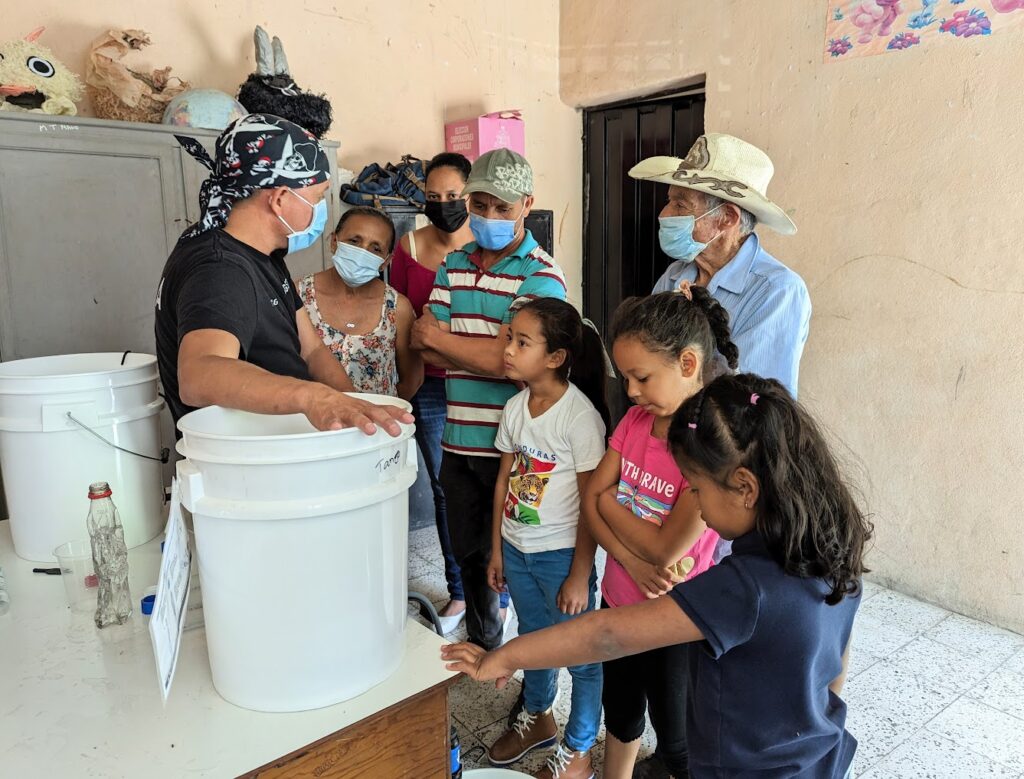
Overall, the mission has raised $175,000 that has covered the filter-related expenses as well as some other special projects including a greenhouse, playground, electrical and maintenance improvements and food and clothing distributions. Since last year, the ministry has focused solely on water filters.
The water filters are the more cost-efficient method of reaching more families, she explained. Wells in Honduras are not common, primarily because building a well costs between $20,000 and $30,000. Poverty is rampant, with many families earning just $1.90 per day “How can you tax people who are making only that much per day?” she asked. With no cost to families, the water filters, if used properly, can provide clean, drinkable and useable water.
Improved overall health tells the story
The John Carroll Medical Brigade is working to collect statistics to document the impact the water filters are making, but anecdotally, the results are positive.
A pharmacist told Boyk that patients in the villages where filters have been distributed appear healthier than those living in villages without filters.
From a doctor who sees patients from some of the villages: deworming treatments, which have been a staple a couple of times per year for most families, are being prescribed less and less, as clean water reduces the chances of parasitic infections.
One of the teachers, who was used to finding roundworms in the school latrines or coughed up by the students, reported seeing fewer parasites at school. Her students don’t miss school anymore for health reasons.
“More importantly, overall health is improving,” Boyk said.
The power of a community that comes together
Success breeds success or, in the case of Mission Honduras-Bethlehem, success means more involvement. Since 2018, more than 40 local people have made the trip, with usually around a dozen signing on to participate and paying for their own travel expenses.
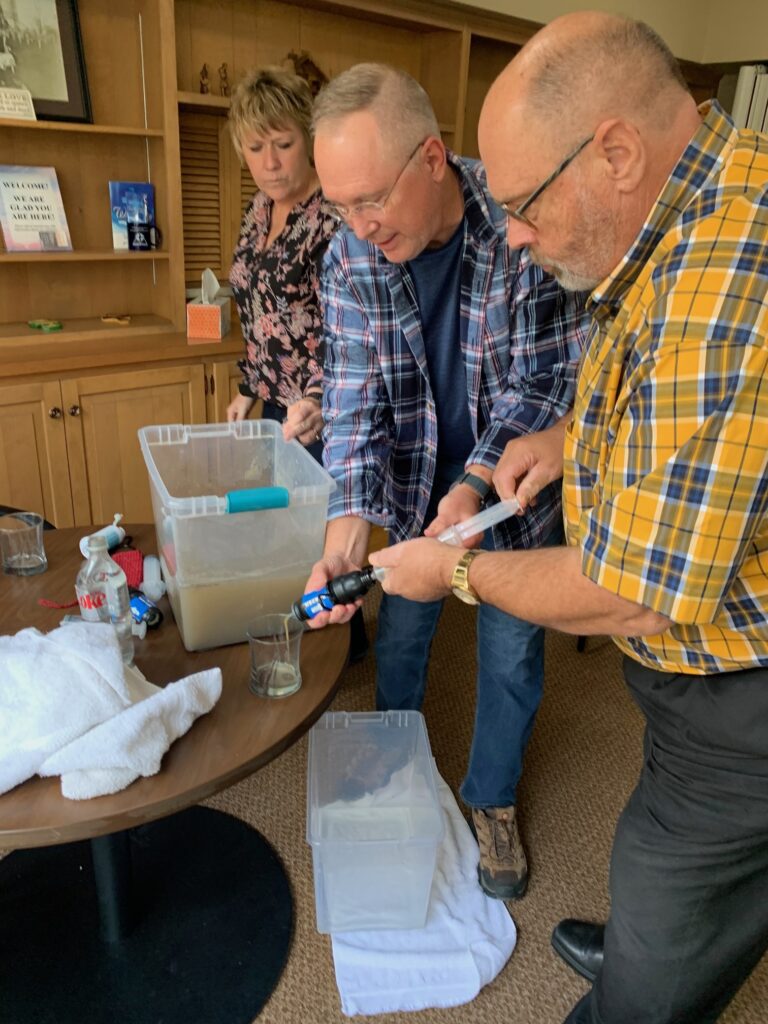
Bethlehem’s Pastor Tim Philabaum said the church and the community have strongly supported the effort, “But make no mistake, Darla is the primary force behind this.”
Meeting the people, learning their culture and seeing positive results keeps the local effort energized. “We are so fortunate for the spirit of our community to be involved in a project beyond our borders,” Boyk said.
Eric Corns, a member of SonFire Ministries in Pemberville and repeat mission participant, said the experience reminded him of how people show up for a traveling circus, or in local terms–the Pemberville Fair.
“We partnered with a group from Tacoma, Washington that has been sending medical professionals for over 20 years. When they set up a clinic in the mountainous villages, the people know if they want to see a doctor, that is when they see them,” Corns said. They won’t see another doctor until they come back or a different brigade visits.
Families, who have heard about or seen the positive results of using water filters, often line up in advance of the filter distribution. They arrive hoping to receive a filter but knowing there aren’t always enough to go around for everyone.
“When the families come to us, they dress up. You can tell it’s important enough to them that they wear their best clothes,” said Philabaum, who is planning to make the January 2024 trip. “They come and are grateful. They listen and they learn.”
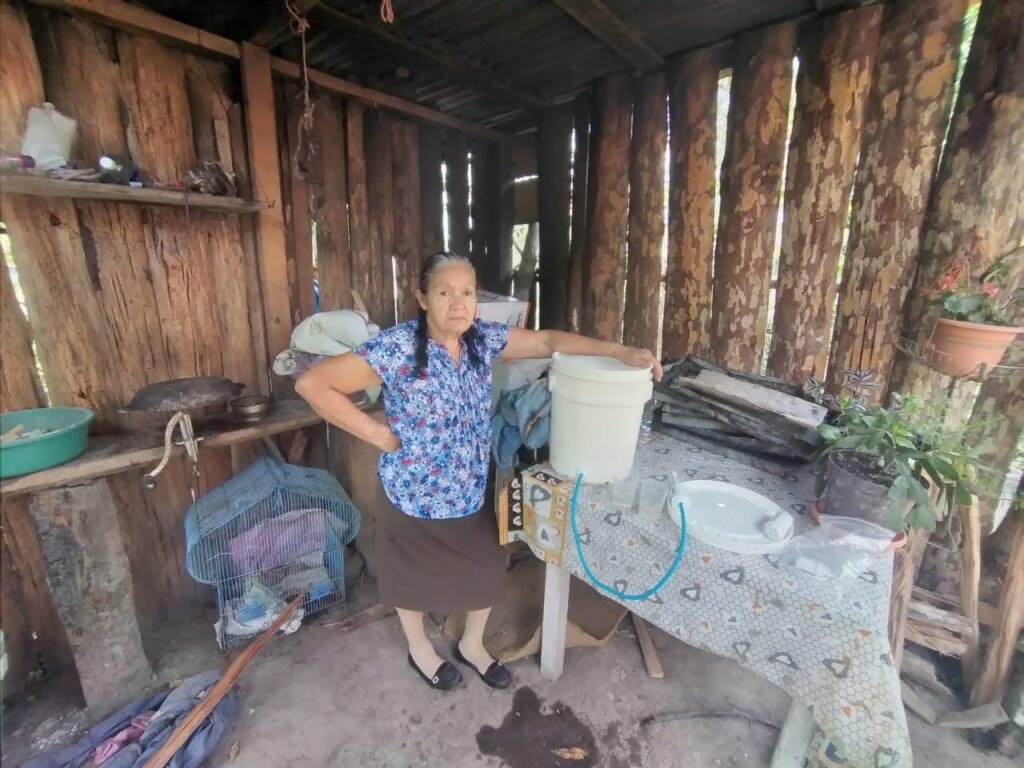
Ongoing education is an important part of the process, Corns said. Family members are shown how the filters work and once they are given their filters, there is a practice area to make sure they know the techniques required to keep the filters clean and free of contamination.
The teams also do unannounced visits to homes, Boyk said. “We are always happy to find the filters in prominent locations in the homes.”
Distributing and checking on water filters are the primary tasks of the mission each time, but there are usually enough people and extra time to fill in with projects such as delivering food clothing and shoes, or improving a playground, Corns said. “I got to see a little girl’s smile as she played on the new teeter-totter.”
Other participants with various skills have taken on projects such as rewiring a building to add LED lighting to a school room.
“What strikes me most is that they are a lot like us. What makes a difference is we were born here and they were born there,” Corns said.
“We focus so much on what we don’t have, and they focus on what they do have. They are so grateful for everything we do,” Philabaum said.
Additional community outreach planned Nov. 12
To learn more about the mission, the church will host an event on Nov. 12 at 6 p.m. in the fellowship hall. “With This Light,” a documentary about the impact of Sister Maria Rosa Leggol, will be screened, appetizers and desserts will be served, and an update about the impact of the local ministry will be shared. A $20 donation is suggested for the meal and RSVPs at SignupGenius are requested to help with planning, but not required. All proceeds from the event will be used to purchase and distribute filters during the January 2024 brigade.
For those interested in donating to the cause, but are unable to attend the Nov. 12 event, checks can be made payable to Mission Honduras-Bethlehem and mailed to: Mission Honduras, c/o Bethlehem Lutheran Church, Box 344, Pemberville, OH 43450.
An online giving option is available through the church’s secure donation portal; go to the giving link at the bottom of the page and use the dropdown box to designate Mission Honduras. All the donation goes to purchase filters or to distribute and check up on filters. Mission Honduras-Bethlehem has its own Facebook page for more information.
“It’s easy to sit back and ask, ‘Why doesn’t God take care of this?’ But I’ve learned that he’s saying, ‘I’ve asked you to be my hands and my feet and serve families in need,’” Boyk said.
Everyone who makes the trip can end each day knowing they have done what they could to help and see the results of what they have been praying for.
“We serve in different ways. If you can’t go the 3,000 miles to help, you can give money or help in other ways,” she said. “It is truly amazing what this community has done for those in Honduras.”


